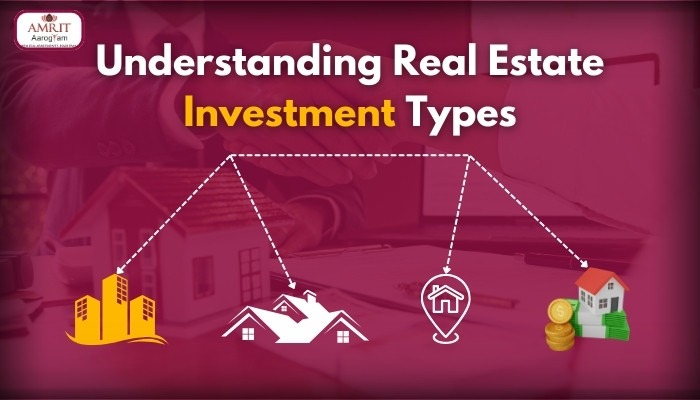
Top Tips for Rental Income Property Buyers

Looking to invest in rental income properties? Discover the essential tips for success in this competitive real estate market.
When it comes to buying a property, it is not just about finding a place to live. It is also a smart way to invest your money. Imagine owning a piece of real estate that can bring you good returns in the future. That is the power of investing in property. But before you dive into the real estate market, let us explore why buying a property is a great idea.
Buy a property?
There are several reasons why people choose to buy property. Firstly, it gives you a place to call home. You can decorate it the way you like and make it your own cozy space. Additionally, owning property can also be a source of income. You can rent it out to tenants and generate rental income. This steady stream of money can help you build wealth over time. Moreover, property values tend to increase over the years, offering you good returns on your investment. So, buying a property is not just about owning a home; it's about making smart financial decisions.
What is the Real Estate Market?
The real estate market is where properties are bought and sold. It's like a giant marketplace where buyers and sellers come together to make transactions. The real estate market plays a crucial role in determining property prices and investment opportunities. When the market is booming, property prices tend to go up. On the other hand, during a slowdown, prices may dip. Understanding how the real estate market works can help you make informed decisions when buying a property. Now that you know the basics, let's delve deeper into the world of property buying.
"Thinking of investing in rental properties? Check out these top tips for rental income property buyers"
Understanding Property Location
When it comes to buying a property, one of the most crucial factors to consider is the location. The location of a property can greatly impacts its value, potential returns, and overall desirability. Let us dig into why property location is so important and how it can influence your investment decisions.
Choosing the Right Location
So, what makes a good location for a property? A good location is one that is convenient and desirable for potential buyers or renters. This could mean being close to amenities such as schools, parks, shopping centers, and public transportation. Access to good schools and recreational facilities can significantly increase the appeal of a property, making it more attractive to tenants or future buyers.
Location and Market Trends
It's essential to pay attention to market trends when considering the location of a property. Trends in the real estate market can have a significant impact on property prices and demand. For example, an up-and-coming neighborhood with new developments and improved infrastructure may see an increase in property values over time. On the other hand, a declining neighborhood with high crime rates or limited amenities may experience a decrease in property values.
Also Read - 5 Advantages of Investing in Haridwar Real Estate in 2024
Financial Considerations
When you decide to buy a property, there are several costs you need to consider. The purchase price of the property is just one part of the equation. You also have to factor in taxes, such as property taxes and closing costs. Additionally, there are ongoing expenses like maintenance costs and insurance that you need to budget for.
Generating Rental Income
One way to make money from your investment property is by renting it out to tenants. This can help you generate a steady stream of income that can offset some of the costs associated with owning the property. Keep in mind that being a landlord comes with responsibilities, such as managing tenants and maintaining the property.
Calculating Good Returns
Calculating the returns on your investment property is essential to determine if it is a good financial decision. To do this, you need to consider factors like the purchase price, rental income, expenses, and potential appreciation in property value. A property that generates positive cash flow and appreciates in value over time is considered a good investment.
Evaluating Property Condition
Get a Proper Inspection
Before buying a property, it's crucial to inspect it thoroughly. During a property inspection, you should look for signs of damage or wear and tear. Check the walls, floors, ceilings, and windows for any cracks or leaks. Additionally, examine the plumbing, electrical systems, and HVAC units to ensure they are in good working condition. It's also essential to assess the structural integrity of the property to avoid any costly repairs in the future.
Understanding Potential Repairs
Understanding the potential repairs needed for a property is vital in making an informed decision. Once you've identified any issues during the inspection, it's essential to estimate the cost and time required for repairs and renovations. Consider hiring a professional inspector or contractor to provide a detailed assessment of the property's condition and the necessary repairs. This will help you budget accordingly and avoid any unexpected expenses down the line.
Legal and Documentation Requirements
When you decide to buy a property, there are several important documents you need to have in order to make the purchase official. The most crucial paperwork includes the title deed, which proves ownership of the property, the sale agreement outlining the terms of the purchase, and any mortgage papers if you are taking out a loan to buy the property. These documents are essential for the legal transfer of ownership from the seller to you, the buyer.
Legal Considerations
Before finalizing the purchase of a property, it's important to consider the legal aspects involved in the process. This may include seeking advice from a lawyer who specializes in real estate transactions. A legal expert can help you navigate through the various legal requirements, ensure that all documentation is in order, and protect your interests throughout the buying process.
Additionally, understanding property laws in your area is crucial when buying a property. Each region may have specific regulations regarding property ownership, taxes, and zoning restrictions. Being aware of these laws can help you avoid any legal issues in the future and ensure a smooth and successful property purchase.
Conclusion and Final Thoughts
After exploring the essential factors to consider when buying a property, it is evident that this process involves careful planning, evaluation, and decision-making. By taking into account the property location, financial considerations, property condition, and legal requirements, one can make a well-informed investment in real estate.
Recap of Key Points
In summary, the location of a property plays a crucial role in its value and potential returns. Understanding the financial aspects, such as costs and income potential, is vital for making a profitable investment. Evaluating the property condition ensures that you are aware of any necessary repairs or renovations. Lastly, complying with legal requirements and having the necessary documentation in place is essential for a smooth property purchase.
Final Advice
For those looking to buy a property, it is advisable to conduct thorough research, seek professional guidance when needed, and carefully assess all aspects of the property before making a decision. Remember to consider your long-term goals and investment strategy to make the most of your real estate purchase. By being well-prepared and informed, you can navigate the real estate market with confidence and success.
Frequently Asked Questions (FAQs)
FAQs on Buying a property
When it comes to buying a property, you may have some questions in mind. Let's address a few common ones:
What is the best time to buy a property?
The best time to buy a property can vary depending on the market conditions. Generally, it's recommended to keep an eye on the real estate market for fluctuations in prices and interest rates. Buying during a period of low interest rates or when there is less competition can be advantageous.
How can I find a good location?
Finding a good location for a property involves considering factors like proximity to amenities, safety of the neighborhood, quality of schools nearby, and potential for growth and development. Researching different neighborhoods, visiting them in person, and seeking advice from real estate professionals can help you identify a desirable location.
What are the hidden costs of buying a property?
When buying a property, it's essential to budget for more than just the purchase price. Hidden costs may include closing costs, property taxes, insurance, maintenance and repair expenses, homeowner association fees, and unexpected repairs. Being prepared for these additional expenses can help you avoid financial surprises down the road.












